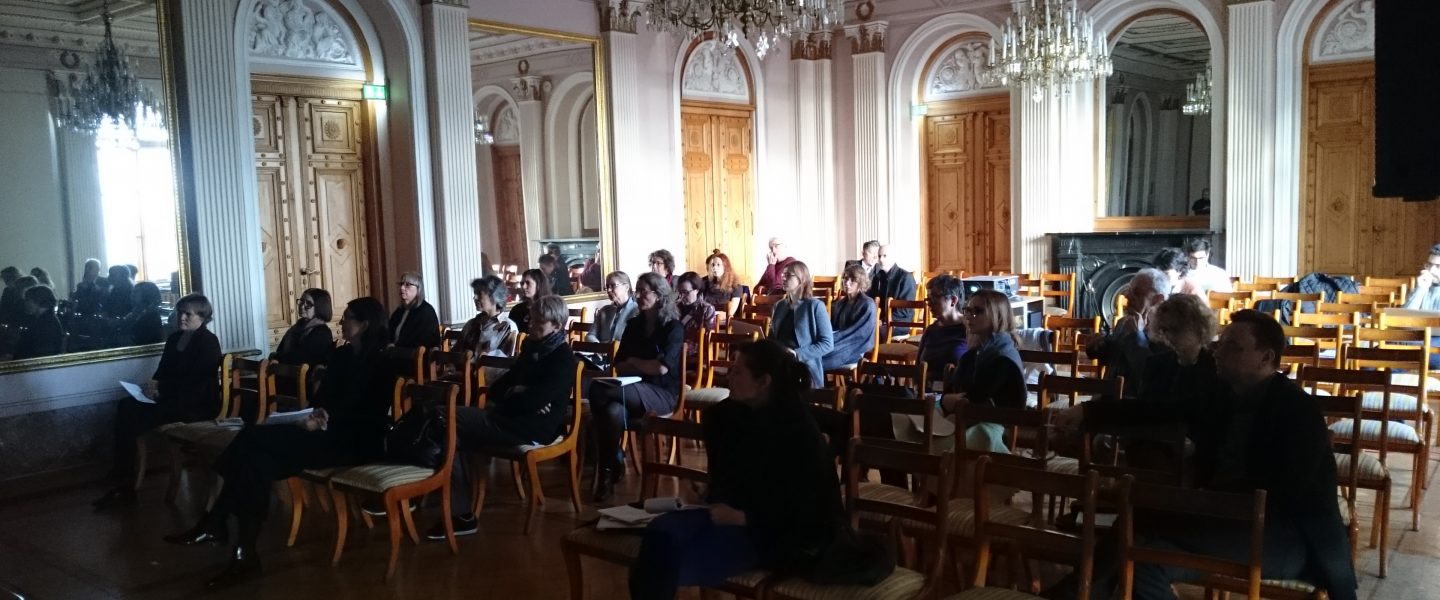
Conference "Art History and Socialism(s) after World War II: The 1940s until the 1960s". Photo: Kristina Jõekalda
The main objective of the research project is to examine the processes in art historiography and knowledge production (writing of art histories, exhibition practice etc.) in Estonia from the 19th to the 21st century in an international comparison. Throughout times same works of art and architecture, as well as entire narratives of local artistic development, have been presented in various ways and assembled into surprisingly differing histories. These, in turn, have formed the basis for understanding and perceiving historical art in the society at large. The project Historicizing Art: Knowledge Production in Art History in Estonia amidst Changing Ideologies and Disciplinary Developments aims to explore how these juxtaposing art histories relate to and differ from one another, and how politics, ideologies, the international discourse of art history and local historiographical tradition have affected these different interpretations. Thus the project sets one of its tasks also to study the historical cultural situations and transnational cultural exchange that have brought these particular perceptions of heritage about.
Principal investigator: Krista Kodres
Senior research staff: Virve Sarapik
Other research staff: Kristina Jõekalda, Kädi Talvoja, Eero Kangor, Maria Jäärats (PhD students)
Duration: 2015–2018
Project type: Personal Research Funding grant PUT788
Financed by the Estonian Research Council
See in the Estonian Research Information System
MAIN RESULTS:
The research group organized the conference Art History and Socialism(s) after World War II: The 1940s until the 1960s (27th–29th Oct. 2016, Tallinn). Follow-up conferences in the same series were held in late 2017 in Leipzig and in early 2020 in Berlin.
The research group initiated a seminar series (Kunsti)ajalooloome. Ümberkirjutamise küsimusi [Questions of constructing and rewriting (art) history], comprising three meetings: Prof. Marek Tamm (January 2016), Prof. Tiina-Ann Kirss (March 2017) and Dr. Epp Annus (May 2018).
Two dissertations were completed at the Institute of Art History and Visual Culture: Kädi Talvoja’s Severe Style in the Context of Estonian Art History Writing (2019) and Kristina Jõekalda’s German Monuments in the Baltic Heimat? A Historiography of Heritage in the ‘Long Nineteenth Century’ (2020).
Staff members published at least 17 peer-reviewed articles – Kodres 2015, 2016a–b, 2018, 2019; Sarapik 2015, 2016, 2019; Talvoja 2017, 2018, 2019; Jõekalda 2015a–b, 2018, 2019a–b; Kangor 2019, plus many popular ones (see in the Estonian Research Information System) – and the special issue Art and Ideologies (Sarapik/Ventsel 2017).
The work of the research group culminated with the edited collection A Socialist Realist History? Writing Art History in the Post-War Decades. Eds. Krista Kodres, Kristina Jõekalda, Michaela Marek. (Das östliche Europa. Kunst- und Kulturgeschichte 9.) Köln, Weimar, Wien: Böhlau, 2019. The book received the Estonian Academy of Arts academic publication award in late 2019. Reviews published in the Journal of Art Historiography, sehepunkte, Histara. Les comptes rendus and Sirp.
The Estonian Research Council has recognized the success of the project and included an outline of the main results into its selection of most outstanding projects: Teadusrikas Eesti. Grandiprojektide tulemuste kogumik 2018 (see the poster on p. 34).
